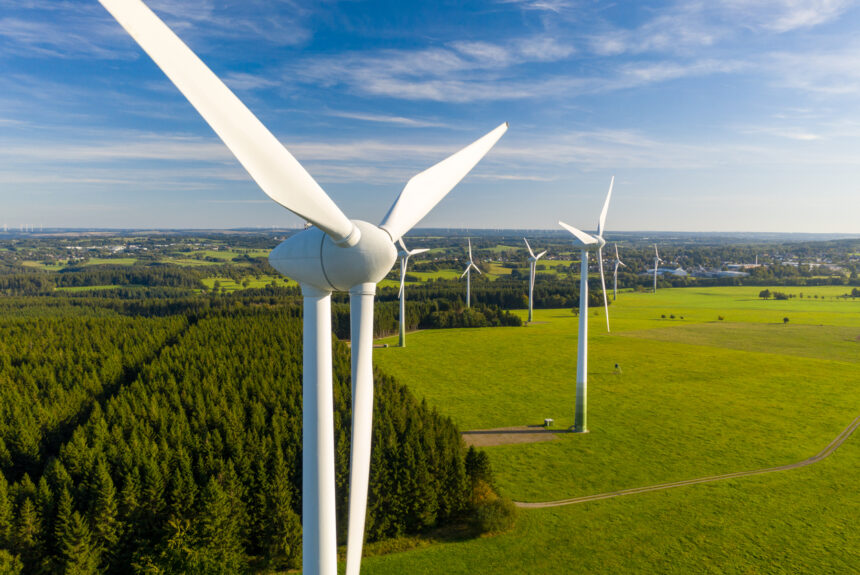The conversation around climate change intensifies this week as policymakers, NGOs, and industry leaders gather in New York for climate week. However, conservative environmentalists remain underrepresented. The absence of conservative voices in the climate debate has led to a one-sided narrative where progressive policies often dominate the discussion. This imbalance has created the false impression that the right has no stake in the future of our planet. In reality, conservative ideals of free markets, personal responsibility, and innovation are critical to achieving long-term environmental goals. Conservatives should offer solutions that protect economic freedom, and national sovereignty to advance human flourishing and reduce emissions.
>>>READ: Rep. Brett Guthrie Discusses Conservative Energy and Climate Policies
Contrary to common belief, many conservatives, particularly younger ones, are increasingly vocal about the need for action. Recent polls show 81 percent of young Republicans view climate change as a serious problem needing action and over half of them would be more likely to vote for a candidate who supports clean energy expansion. This awareness is reshaping the political landscape and offers a unique opportunity for conservatives to show that conservation aligns with national interests.
Conservatives have long valued conservation and the responsible use of natural resources, believing that environmental protection and economic progress can coexist. The conservative approach to climate change emphasizes principles that have historically driven American success such as innovation, private sector leadership, and minimizing government overreach.
One of the biggest obstacles to expanding clean energy in the US is the maze of regulatory red tape that stifles progress. The current permitting process is slow, inefficient, and costly, preventing more energy supply from reaching the market when demand is on the rise. The red tape not only delays clean energy projects but also raises costs, making renewable energy less attractive to investors. This discourages private investment and slows the U.S. transition to cleaner energy, at a time when global demand is rising and efficiency is crucial to staying competitive. Streamlining these processes is essential for reaching energy goals and boosting competitiveness.
An energy project in the United States can take up to ten years to receive all the necessary federal, state, and local approvals before breaking ground. This lengthy timeline is due to overlapping jurisdictions, excessive paperwork, and numerous environmental impact assessments, which, while important, are often subject to redundant review processes between state and federal agencies. These delays impact America’s ability to build reliable grid infrastructure, pipeline capacity, and even carbon storage.
By comparison, China, with its centralized decision-making, can push projects through in a fraction of the time, enabling faster development and deployment of clean energy infrastructure. However, while China’s centralized decision-making enables rapid project approvals, this approach has significant downsides. It often leads to environmental and social oversights, with projects sometimes fast-tracked without thorough impact assessments. Moreover, centralization can foster inefficiencies and corruption, as decisions may not align with local needs, and innovation might be stifled due to a lack of competition. In contrast, decentralized systems, though slower, promote greater transparency, adaptability, and long-term sustainability by incorporating diverse inputs and fostering competition.
>>>READ: A Better Way to Talk About Climate
Therefore, the U.S. should not beat China by becoming like China. Instead, it should implement meaningful permitting reform to capitalize on America’s economic and environmental advantage and become more competitive in global markets.
Policymakers must also recognize the importance of American energy production in reducing costs and global emissions. American liquefied natural gas (LNG), for instance, is about 40 percent cleaner than Russian alternatives, making it a more sustainable choice for countries aiming to lower their carbon footprint. Expanding our influence through energy exports, particularly LNG, will reduce global reliance on less environmentally friendly sources and enhance US geopolitical standing.
Meanwhile, accelerating domestic mining and securing critical minerals through trade and partnerships with allies will strengthen supply chains and reduce vulnerability.
“American energy is clean energy” is more than a slogan, it is a strategy to position the US as a global leader in energy production and climate change mitigation. Embracing energy dominance by leveraging all resources – fossil fuels, renewables, and emerging technologies – while upholding environmental standards will enhance our energy security and ensure the US leads in producing and exporting clean energy. By capitalizing on American energy abundance, we can protect the environment, strengthen the economy, enhance national security, and secure our place as a global leader.
Mirko Viola is the NYC Branch Leader and Ambassador for the American Conservation Coalition (ACC), where he focuses on environmental stewardship, community engagement, and promoting conservative solutions to climate change. With a background in Global Affairs, environmental policy and sustainability consulting, Mirko is dedicated to fostering solutions that balance economic growth with environmental responsibility.
The views and opinions expressed are those of the author’s and do not necessarily reflect the official policy or position of C3.
